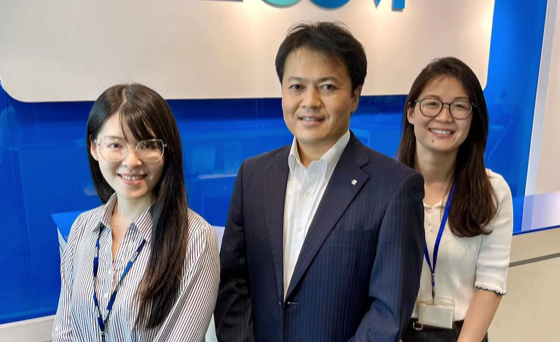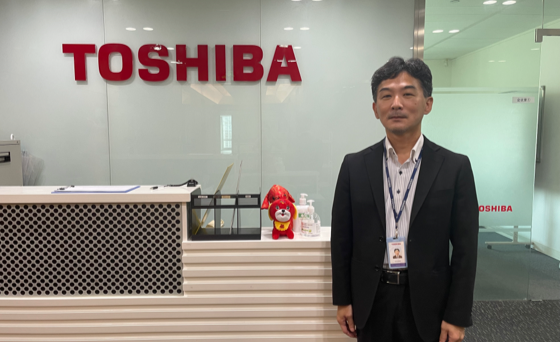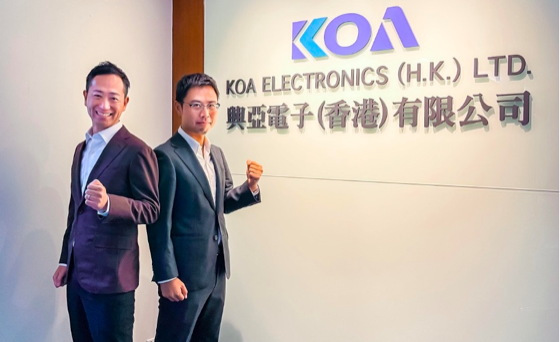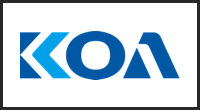Like the “information research lab”, Panasonic China shortens the time of the general research to two hours.
It was used in the research and development departments of major electronics manufacturers.

It's just like our “information research lab”.
Speeda case of Panasonic Corporation of China
Taking "Life Renewal" as a new vision for the future, Panasonic, a large Electric machinery maker, is committed to research and development. Panasonic R&D Center Suzhou Co., Ltd. was established to absorb the changes of the Chinese market and the most cutting-edge technology research and development.
The Speeda economic information platform is used for local research and development operations. We asked KAZUHIRO HATTA, who works in the company's advanced development department to tell us about the background and issues of introducing the system, as well as what kind of business scenario it is being used in.
- Summary
-
- At Panasonic's China base, research and development is being carried out in line with changes in the Chinese market and cutting-edge technology.
- The company, which focuses on business development in the Chinese market, wants to share DX technology and case studies with local Japanese companies.
- Speeda not only gives you a macro perspective, but also allows you to do research on your customers and competitors, which used to require a whole day,but now the process can be completed in one or two hours.
- Mr. HATTA, who is in charge of introducing Speeda, commented that Speeda is like our "information research lab".
The Role of Panasonic’s China Base in R&D in the Coming Years

Q: Please tell us about your business.
Mr. KAZUHIRO HATTA (hereinafter referred to as Mr. HATTA): Panasonic's Suzhou R&D Centre is developing technologies for companies in the fields of home appliance and residence, such as lighting, air conditioners and refrigerators.
In the rapidly changing Chinese market, offering certain kinds of solutions is becoming more important than selling individual products, and changes in demand and market research are also important. There is also the mission of integrating the latest technologies such as the Internet of Things (IoT), which are advancing in comparison to Japan.
Q: Please tell us about the work you are responsible for.
Mr. HATTA: I started out in R&D for lighting equipment, and now I am doing technical development and market research in the Advance Development Department, which was established in April, 2020. Our mission is to study trends and the latest technologies in the Chinese market and think about how we should respond to them.
I am the only Japanese in the team and the remaining seven are Chinese members. Our team is basically made up of technical staff.
Unreliable Local Information Gathering
Q: How did you carry out your research before using Speeda?
Mr. HATTA: There are three main areas. The first one is direct search by using a local browser service (such as Baidu). The second method is to use Chinese specific relationships and conduct research using analogs. Many Chinese companies still haven’t websites, so it's not uncommon for them to do off-line research. The third method is to ask a local research company to conduct a survey. However, there exists problems in terms of information reliability. Some research companies once claimed, "We can create the data you want." Since important data such as surveys on product importance can not be fabricated, I declined, of course.
A Macro Perspective on Some Issues to Improve the Efficiency of Information Collection and Research
Q: What challenges have you encountered in your research work?
Mr. HATTA: One of them is that sources of macro information about overall trends in China are limited. I think if you do your research in Japan, you will have easier access to information about China as a whole. After all, the search results of local browsers like Baidu seem to be biased, and from a fair point of view it is very doubtful.
Another issue is how to collect information effectively. In Japan, there is an information retrieval system on the internet and you can access all kinds of information on Google and government websites.
In China, on the other hand, many companies do not have a website to begin with and have limited access to information, so it may take a lot of time to find the information you want, or it may not be possible to find it. In fact, the Chinese companies that have set up their own websites are multinational companies. As for small and medium-sized enterprises, there are almost no websites.

Monthly Reports and Support Strategies Are Decisive Factors
Q: What made you decide to use Speeda?
Mr. HATTA: It's a coincidence. I learned about it when I attended a social gathering of Japanese expatriates in China hosted by User based group around 2018. The research questions I had at that time were discussed. After the introduction, Speeda might be a good choice for me. At the time, there was no research company or database in China that could solve our problem, so we did not compare with other companies.
Q: Please tell us about the trial before the official import.
Mr. HATTA: The trial period lasted about three weeks. We asked seven Chinese staff in the Advanced Development Department and a dozen of expatriates to use it and get feedback. After the trial, we got good inside feedback.
We have received comments such as "the site is fast to display", "the site is easy to read" and "the information is of very high quality". The decision was made based on monthly reports and customer success support.
After the decision was made, Japanese in the local came to the site and gave a speech on using Speeda.
Search for "Speeda" First If You Don't Know the Information

Q: What are the current usage scenarios for Speeda?
Mr. HATTA: If I don't have enough information when I'm researching various themes at work, I immediately get into the habit of using Speeda. I use it once or twice a day on average.
We also use it in customer success consultations. For example, when considering a new product or planning a new system or solution, when investigating trends in other companies or support in the Chinese market, we use it.
Customer success is highly commended for its quick response. As for our enquiries, they will be answered within 30 minutes. Therefore, if an enquiry is made before the meeting and confirmed at the end of the meeting, an answer will be given.
In addition, the monthly report on the Chinese market is an invaluable resource for learning about the Chinese market. Although being in China, we are surrounded by information that makes it so actual.
A rather special use is that I browse Speeda to discover new topics and news and link them to new ideas.
"It's like our intelligence lab."
Q: Please tell us your impressions after importing Speeda.
Mr. HATTA: My first impression is that this is a new approach of searching for information. Although there are various sources of information in China, we can do a comprehensive search from a contact point called "Speeda", which saves us a lot of time. I think you can get almost all the information you want through Speeda. For the information that is hard to get, you can also ask an exclusive consultant for advice or customization Research. It's like our "information research room" and I think it's very reliable.

Q: Tell us your impressions on the company and the local staff.
Mr. HATTA: I think many people have the same impression as I do. Research work has become more efficient, and comprehensive information is available and the general trends in the Chinese market can be mastered . In addition, local staff can make good use of it.
Q: On the question of efficiency, specifically how much time has been reduced in research?
Mr. HATTA: The topics that we used to spend a whole day researching on a Saturday when we had plenty of time now take only one or two hours. Specifically, the information is mainly about competitors and the scale of sales, etc.
Q: What is the most memorable thing about using Speeda?
Mr. HATTA: Before we meet local suppliers and vendors, we use Speeda to do some research in advance. We mainly investigate their sales scale, transformation and latest topics. Then the conversation will be lively and we can discuss strategies. After these exchanges, Speeda is also used when considering which companies to work with.
Combining Online and Offline Information to Develop New Business
Q: What are the future prospects for the business?
Mr. HATTA: We are considering new development in the housing sector in response to the changing lifestyles in China. We hope to develop new products and solutions based on technologies that combine the strengths of both Japan and China. In planning this new business development, we will actively use the information we have gained through Speeda.
I know that the Chinese market is changing very rapidly and there is an image that information hasn’t been organized on the internet. I think it will become even more important to combine online research using Speeda with offline information obtained through physical contact.
Thank you!

Panasonic R&D Center Suzhou Co., Ltd.
www.panasonic.com
Features
We are a major electrical appliance manufacturer committed to future-oriented research and development with a new vision of "life update industry". The company is committed to research and development in a wide range of fields such as "home appliances", "housing", "automotive" and "b2b". The Panasonic R&D Centre Suzhou Co., Ltd. was established to introduce the most advanced technologies for research and development in response to changes in the Chinese market.
Type of industry
Maker
Department, category
Research and Development
Main use scenes
Investigation operations in research and development

Panasonic R&D Center Suzhou Co., Ltd.
Advance Development Department
Mr. KAZUHIRO HATTA
Other classic cases
Uzabase China Limited
Room 770, No. 968 West Beijing Rd., Jingan District
Shanghai, China
TEL:(86)021-60191590
Email:info.china@uzabase.com







